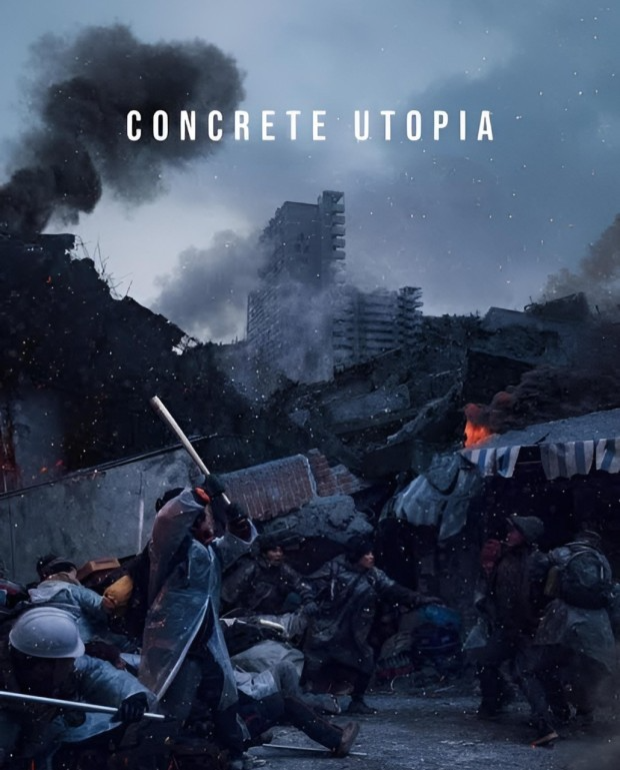Today, I am going to talk about the review and backstories of the K-movie, “A Taxi Driver”.
“A Taxi Driver” (Korean: 택시운전사) is a South Korean historical drama film directed by Jang Hoon, released in 2017. The movie is inspired by real events and tells the story of a German journalist, Jürgen Hinzpeter, and a South Korean taxi driver, Kim Sa-bok, during the Gwangju Uprising in May 1980. This political uprising was a pivotal moment in South Korea’s struggle for democracy, marked by mass protests against the military dictatorship and resulting in a tragic massacre.
The film stars Song Kang-ho as Kim Man-seob, a down-on-his-luck taxi driver in Seoul who unwittingly becomes part of a historic event when he takes a foreign passenger, played by Thomas Kretschmann, to Gwangju for a large fee. Initially unaware of the situation, Kim Man-seob finds himself in the middle of the uprising, witnessing the brutality of the government’s response to the protests. The journey transforms him from a bystander into a participant as he risks his life to help Hinzpeter gather evidence and footage of the massacre to expose the truth to the international community.
“A Taxi Driver” is celebrated for its powerful storytelling, emotional depth, and the compelling performances of its cast, particularly Song Kang-ho. The film not only sheds light on a critical moment in South Korea’s history but also explores themes of courage, friendship, and the impact of ordinary people in extraordinary circumstances. It was a box office hit in South Korea and received widespread acclaim for its direction, acting, and its respectful yet engaging portrayal of historical events.

“A Taxi Driver” Plot
The Korean movie, “A Taxi Driver” is a captivating South Korean film directed by Jang Hoon, released in 2017. The story unfolds against the backdrop of the Gwangju Uprising in May 1980, a pivotal moment in South Korean history marked by a pro-democracy movement.
Our main character, Kim Man-seob (played by Song Kang-ho), is a struggling taxi driver facing financial difficulties. In need of money, he accepts a fare that takes him to Gwangju, oblivious to the political unrest engulfing the city. Little does he know, he is about to witness the harsh reality of the government’s crackdown on citizens participating in pro-democracy demonstrations.
As Kim Man-seob arrives in Gwangju, he slowly becomes aware of the severity of the situation. The government’s brutal suppression of the uprising is unveiled before his eyes. Despite his initial ignorance, Kim Man-seob decides to get involved. This decision sets the stage for an unexpected partnership with a German journalist named Peter (played by Thomas Kretschmann).
Together, Kim Man-seob and Peter navigate through the chaos of Gwangju, risking their lives to document and expose the government’s actions to the world. The film delves into the themes of activism, sacrifice, and the impactful role that ordinary individuals can play in challenging injustice.
The characters find themselves in a moral and ethical dilemma as they bear witness to the government’s ruthless efforts to quash the uprising. The movie emphasizes the significance of truth and showcases how individuals, even those from unexpected backgrounds like a taxi driver, can shape the course of history.
“A Taxi Driver” received acclaim for its powerful storytelling, compelling performances, and its portrayal of a crucial moment in South Korean history. It brings to light the importance of truth and underscores the role of seemingly ordinary people in influencing historical events.
“A Taxi Driver” Review
I’m planning to write a review about the movie “A Taxi Driver,” starring Song Kang-ho, which depicts the events of the May 18 Democratic Uprising in 1980 in South Korea. Although I had some personal expectations for the film even before its release, I wasn’t overly enthusiastic about it.
I initially thought it would be a relatively light movie, something to watch casually. However, “A Taxi Driver” turned out to be much more impactful than I anticipated, leaving a lasting impression and offering not only an engaging experience but also valuable insights. The film effectively portrays the pain of our history, especially when witnessing the sacrifices of the citizens of Gwangju. It’s truly heartbreaking to see the extent of the tragedy.
German journalist Jürgen Hinzpeter filmed the events to bring them to the attention of the world, underscoring the significance of this incident. The magnitude of the tragedy is profoundly disheartening.
Rather than providing a detailed account of the events, the movie takes a simpler approach, placing the protagonist in the location and time of the incident, showcasing the reactions of him and those around him. The audience witnesses and experiences the events through the protagonist’s eyes, understanding and reflecting on them differently based on their own perspectives. Throughout the film, you feel like you’ve entered the shoes of the protagonist, experiencing the events as if you were there. Exiting the theater, the movie prompts contemplation.
While the early scenes offer light moments and laughter, the middle part introduces poignant scenes, gradually building emotional intensity. I highly recommend this film to many people. It’s a movie that stimulates a lot of thoughts and emotions.
Personally, I consider “A Taxi Driver” to be a defining film in Song Kang-ho’s career, showcasing his exceptional acting skills. He once again demonstrates the acting prowess characteristic of a Korean national actor. Though Ryu Jun-yeol and Yoo Hae-jin’s roles aren’t predominant, they undeniably contribute to the film’s presence. Thomas Kretschmann’s portrayal of Jürgen Hinzpeter is also impressively compelling.
Starting with the everyday life of a taxi driver in the early part, “A Taxi Driver” transitions into a powerful depiction of the pain of that era in the middle section. The film is a well-crafted piece of storytelling. Once again, Song Kang-ho’s performance is undoubtedly praiseworthy. From the beginning to the ending, I was completely immersed in the film. You can also look forward to the performances of other actors.
This film vividly conveys the sorrow of that time, making it easy for viewers to empathize. The story, the performances—everything about it is exceptional. It’s safe to say that it deserves a solid five-star rating. I highly recommend everyone to watch “A Taxi Driver” at least once.
“A Taxi Driver” Backstories
Unveiling Gwangju’s Struggle for Democracy
The film “A Taxi Driver” unfolds against the backdrop of the significant historical event known as the Gwangju Democratization Movement, which took place in May 1980. Initially dubbed the Gwangju Uprising or Gwangju Disturbance by the media, the incident later acquired various names such as Gwangju People’s Struggle and Gwangju Massacre, with a common shorthand reference being “5.18,” marking the date of the occurrence. The majority of South Korean educational materials, including textbooks, recognize it as the Gwangju Democratization Movement.
Fare to Gwangju
Within the movie’s narrative, the taxi fare for a round trip between Seoul and Gwangju is a noteworthy element. Priced at 100,000 won in the film, when adjusted for inflation, this amount translates to approximately 500,000 won today. The context of this fare adds depth to the storyline, reflecting the challenges and sacrifices made during this tumultuous period. For perspective, the round trip distance between Seoul and Gwangju spans approximately 600 kilometers.
Thomas Kretschmann’s Remarkable Involvement
Director Jang Hoon’s pursuit of Thomas Kretschmann for a role in the film sheds light on the actor’s keen interest and commitment. Contrary to expectations, Kretschmann, known for his roles as villains and Nazis, showed enthusiasm for a positive character. Jang, in an intriguing turn of events, shared that Kretschmann even extended hospitality, treating him to dinner until late in the evening. The actor’s personal experiences, perhaps reflecting his own escape from East Germany, could have contributed to his deep connection to the project.
Gerhard Schröder’s Viewing
Adding another layer of global significance, Gerhard Schröder, the former German Chancellor, who happened to be in Korea at the time, watched “A Taxi Driver.” His presence in the audience, alongside Kim Seung-pil, the son of Kim Sa-bok, a real taxi driver in the Gwangju Uprising, underscores the film’s international resonance.


